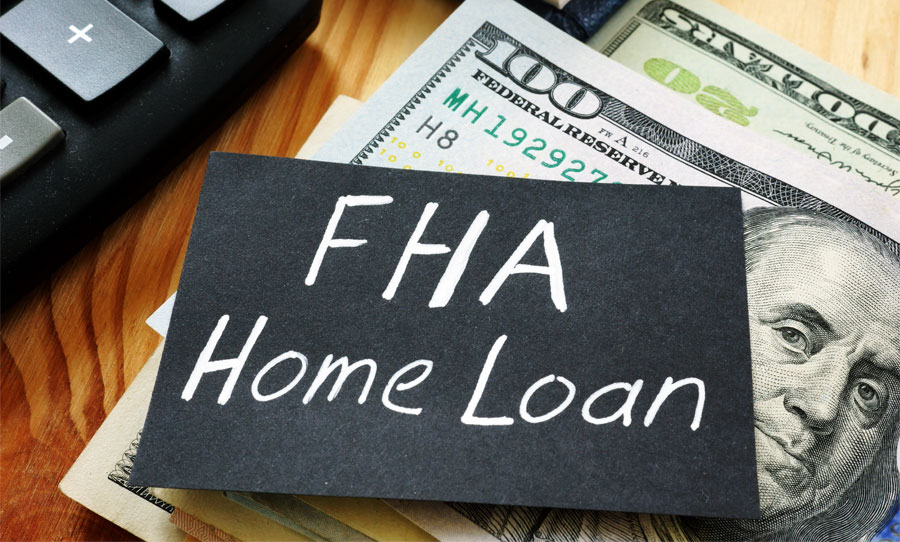FHA Loans and Bankruptcy or Foreclosure
Filing for bankruptcy or losing a home in foreclosure doesn’t exclude you from future FHA loans. You must sit out the required waiting period, but if you have the qualifying factors after that time, you may qualify.
In fact, FHA loans have some of the most flexible guidelines regarding FHA loans after bankruptcy and foreclosure. The key is to improve your financial situation while you sit out the waiting period. Once the time is up, you may apply again. Here’s what you must know.
FHA Loans and Bankruptcy
If you found yourself in over your head in debt, bankruptcy may have been the only answer. Now that you have a clean slate, you can start over by creating a good credit history and keeping your debt-to-income ratio at a manageable level.
Here’s how the FHA handles Chapter 7 and Chapter 13 bankruptcies.
Chapter 7 Bankruptcy and FHA Loans
A Chapter 7 bankruptcy wipes the slate clean after discharging your debts. After selling off any assets and paying the creditors with the proceeds, the courts discharge your remaining debts (assuming you qualified).
Once the courts discharge your bankruptcy (wipe your slate clean), the FHA requires a 2-year waiting period. For example, if you filed for bankruptcy on March 1st, but the court discharged the case on June 30th, your discharge date (and 2-year waiting period) starts on June 30th.
FHA lenders may allow a 1-year waiting period if you can prove you had extenuating circumstances beyond your control that caused you to file bankruptcy. Like the 2-year waiting period, you must prove you’ve since practiced good credit habits and are a good risk.
No matter how much time you must wait, use it wisely. Try building your credit score back up and make sure you make your monthly payments on time. Even if it’s your rent, utilities, and insurance payments you make, keep track as they can serve as alternative credit if you don’t build up a credit score again.
Chapter 13 Bankruptcy and FHA Loans
A Chapter 13 bankruptcy doesn’t wipe the slate clean. You keep your assets and your debts. A Chapter 13 bankruptcy reorganizes your debts, making it easier to pay them. A trustee oversees your accounts and disburses the funds to your creditors after receiving your payment each month.
Since the Chapter 13 bankruptcy keeps you accountable, the FHA requires only a 12-month waiting period. You must prove you’re financially stable now and have proof of at least 12 months of timely payments. Many people also need the trustee’s approval to take on a new loan to make sure it won’t put them in over their head again.
Foreclosures and FHA Loans
If you couldn’t make your mortgage payments and lost your home in foreclosure, the FHA requires a 3-year waiting period from the date of loss. This gives you time to save up for the down payment and improve your credit score since foreclosures have a devastating effect on them.
If you foreclosed on a government-backed loan, such as an FHA, USDA, or VA loan, the lender must also check CAIVRS, the Housing and Urban Development Credit Alert System, to make sure the debt is cleared from the system before proceeding.
If you lost your home in foreclosure, improve your credit as much as possible, and get your debt-to-income ratios as low as you can. Since a foreclosure makes you look riskier, you want to show lenders you have turned over a new leaf and can handle a new mortgage.
Improving your Credit after Bankruptcy or Foreclosure
Despite the devastating effects bankruptcy and foreclosure have on your credit score, it can bounce back with the right steps. Here are some helpful tips:
- Pay all your bills on time. If you consistently forget, set up automatic payments.
- Keep your revolving debt as low as you can. Credit scores drop once your credit card balances exceed 30 percent of the credit line. If you have a $1,000 credit line, don’t have more than $300 outstanding at one time. Only charge what you can afford to pay off in full or close to it. This helps your credit score and debt-to-income ratios.
- Avoid opening and closing accounts. Keep your credit as stable as possible. Right after bankruptcy or foreclosure, you may open a secured credit card to start your new credit journey. Once you improve your credit score and get an unsecured credit card and/or installment loan, keep the secured card open, but don’t use it. You need the credit history length to build your credit score up too.
- Don’t make drastic changes. Any sudden spike in credit card purchases or new credit or decrease in payments tells lenders you’re having financial difficulty. Keep things as consistent and stable as possible to increase your credit score.
Filing bankruptcy or foreclosure isn’t the end of the road for future homeownership. FHA loans in Colorado have some of the most lenient guidelines in these areas. Let me help you find the loan that works best for you after filing for bankruptcy or foreclosure.

